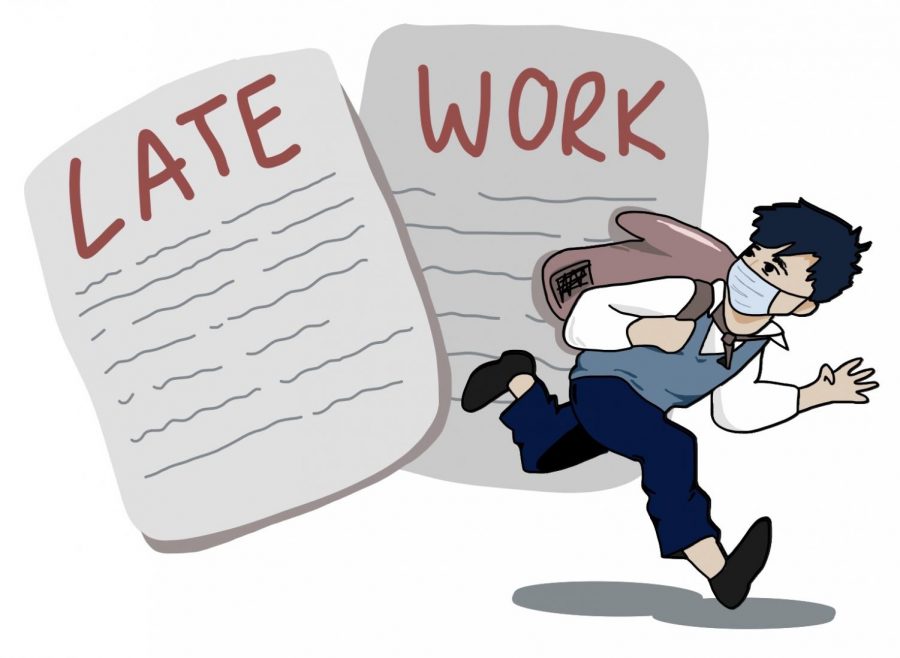CAMPUS: Bruins speak on the wide array of late work policies and their impact
Many teachers at SCHS have different late work policies, ranging from teachers not accepting any late work, accepting late work a certain amount of time past its due date, to accepting late work until the end of the semester.
Spanish teacher Jennifier Herrera shared how her late policy works and what she expects from students if they are to turn in missing assignments.
“Generally, my late work policy is if a student is absent, then I give them until the following Friday, so that’s between a week to 10 days to get stuff turned in,” Herrera said.
Due to COVID-19, many teachers, including Herrera, adjusted their late work policies in order to allow students who missed a few days to make up work.
“It’s been a little bit more difficult this fall semester because with COVID protocols, they (students) are gone more than one day, and I don’t see them everyday,” Herrera said.
English teacher Elizabeth Kelly explained that her late work policy includes no repercussions for turning in assignments after their due dates.
“There’s no penalty for late work in my class. The reason for that is because it started with the whole COVID thing and us being online, and we wanted to give people more leeway,” Kelly said.
Kelly explained that her late policy prior to the pandemic and distance learning was not as lenient as her current system. She felt that after a year and a half of distance learning, the new block schedule and new COVID-19 policies regarding absences and quarantine, late work policies needed adjusting to be more accommodating.
“Before COVID, I used to have a policy that you had two days to turn in late work for half credit, and that was it,” Kelly said. “Especially with all the people being out for 10 days to quarantine, it just doesn’t make sense to arbitrarily have a turn in date.”
Senior Jason Visitacion shared his insights about his teacher’s typical late work policies and how they align with his work ethic.
“It really depends on if it’s a project or anything. Usually, I’m that type of person that turns it in on time, but if I don’t have time or if I have a lot on my plate, they’re really flexible so they would give me another one or two days,” Visitacion said.
Herrera explained that she has adapted her late work policy in order to allow students who have to quarantine enough time to make up work.
“In theory, now they have more opportunities to turn in work late because, before, I just didn’t take it, but I’m trying to figure out how to give more opportunities to turn in work with the COVID protocols,” Herrera said.
Visitacion explained most of his teachers do not have penalties for late work.
“Surprisingly no, like my economics teacher Ms. Schmale doesn’t have a late work policy. She’s always flexible with all that, so it doesn’t affect our grades,” Visitacion said.
Visitacion believes, in essence, the flexibility in his teachers’ late work policies is beneficial to him for the sake of his well-being and preventing burnout.
“It’s more flexible for our time to rejuvenate because sometimes we need space for ourselves and we just need a break for our mindset, where I feel like constantly we work and work, and it turns out we get stressed,” Visitacion said. “I feel like with teachers being flexible and all that benefits us to take time for ourselves and just focus on our mental health.”


